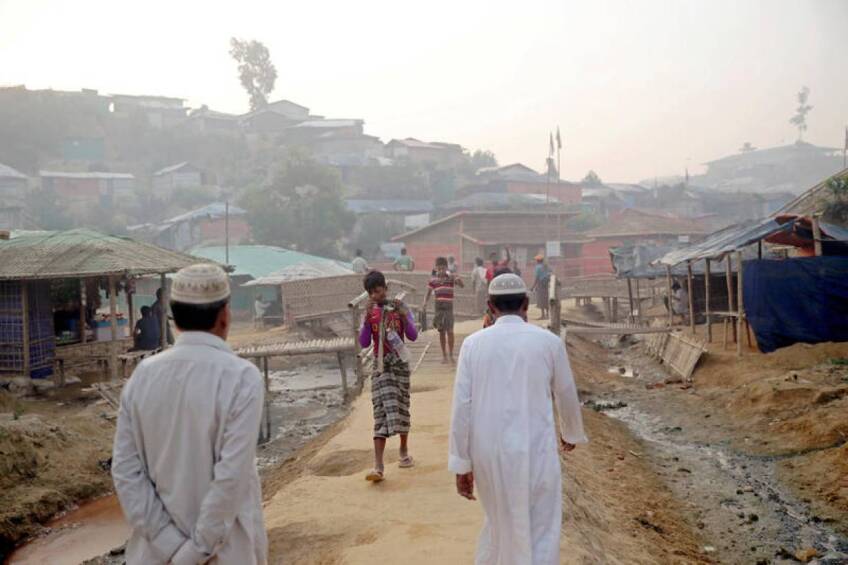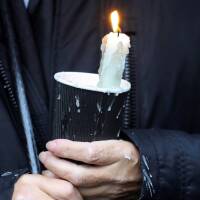Aid Workers Race to Stop Coronavirus Spreading in World's Largest Refugee Camp
This story was originally published May 15, 2020 by the Thomson Reuters Foundation.
Aid workers in Bangladesh raced to stop the coronavirus spreading through the world's largest refugee settlement on Friday, installing isolation treatment centers and hand washing stations, after the first cases were confirmed.
The United Nations refugee agency (UNHCR) said the 850,000 Rohingya who occupy the densely populated camps in Bangladesh were among the world's most vulnerable to the highly contagious virus, which has spread rapidly around the globe.
Aid workers have warned of a potential humanitarian disaster if there is a significant outbreak in the camps in Bangladesh, which has reported about 300 deaths from the virus.
"Teams have been activated to investigate ... initiate isolation and treatment of patients as well as tracing contacts," said Andrej Mahecic, spokesman for the UNHCR, after three Rohingya refugees tested positive. "These populations are considered to be among the most at risk globally in this pandemic."

About 4,000 refugees have been asked not to leave their block to slow down the spread of the virus, said Mahbub Alam Talukder, Bangladesh's commissioner for refugees.
More on the impact of COVID-19 around the world
"We managed to delay the entry of the virus in the camps for a long time and that's because we have been working to prevent its spread since March. We have prepared for this," he said.
About 250 isolation beds were being set up in the crowded camps, the United Nations said. Aid agencies are also installing contactless washing stations to reduce the spread of the virus.
"With 40,000 people crammed per square kilometer, maintaining social distance is impossible," said Dipankar Datta, Bangladesh country director for the charity Oxfam, adding that shared toilet facilities made things even more challenging.
Forecasts of a cyclone in the coming days could bring "further suffering" to the refugees, he warned.
Rezwan Khan, a 22-year-old Rohingya refugee, said people in the camps were scared. "I have seen fewer people come out," he said.
More than 730,000 Rohingya arrived from Myanmar in late 2017 after fleeing a military crackdown. Myanmar is facing charges of genocide at the International Court of Justice in the Hague over the violence.
The army denies genocide, saying it was fighting a legitimate battle against Rohingya militants who attacked first.
Reporting by Naimul Karim @Naimonthefield; Editing by Claire Cozens.


